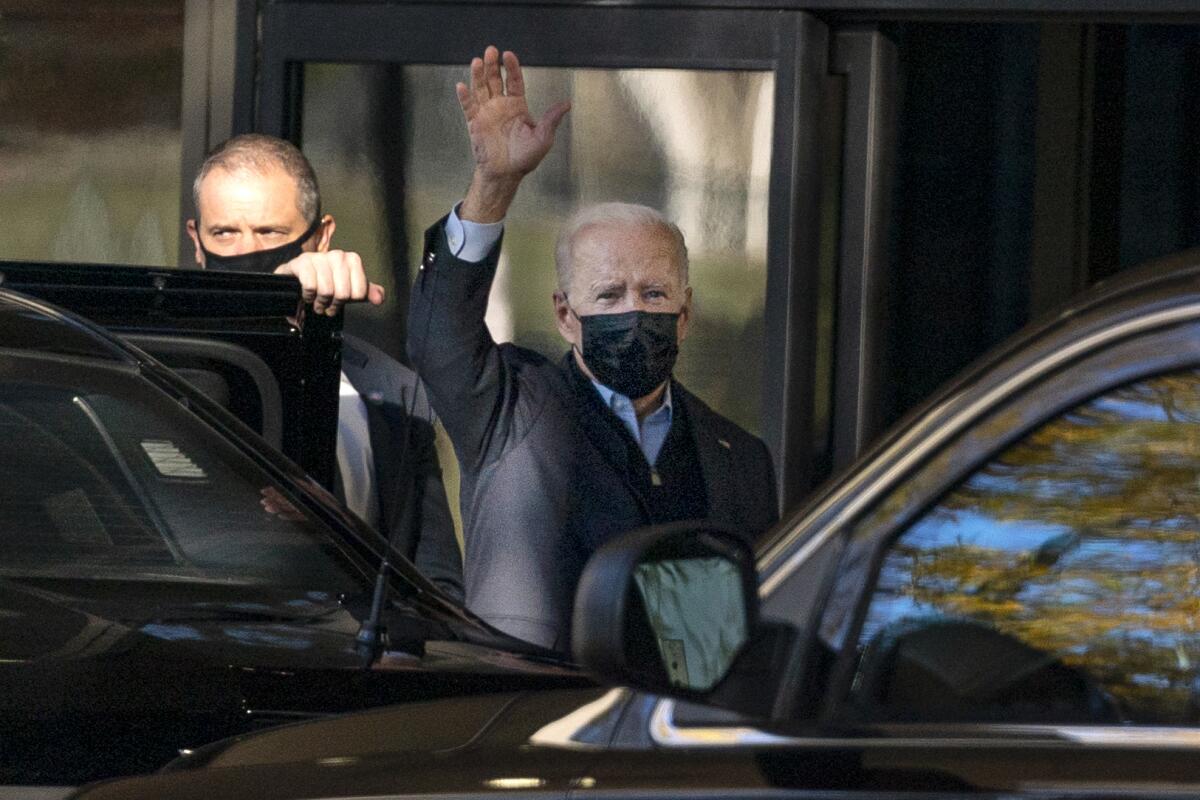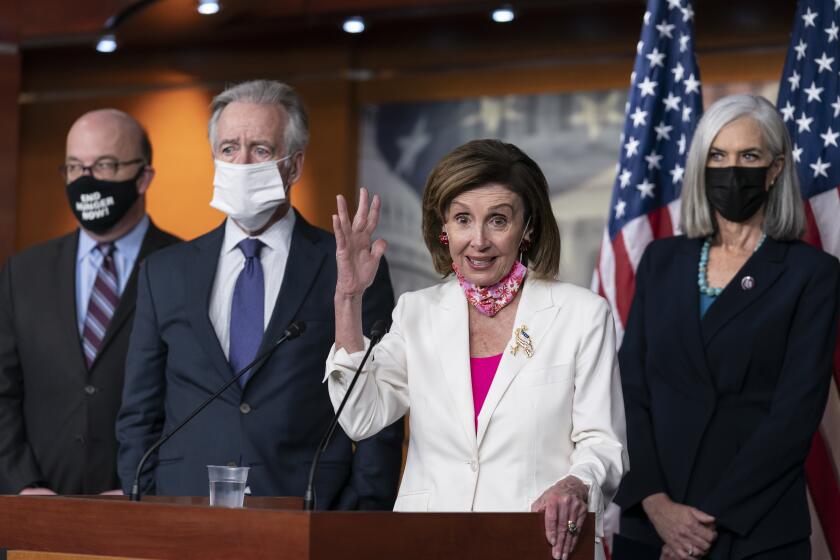Biden is sedated for a routine colonoscopy, putting Harris briefly in power

- Share via
BETHESDA, Md. — President Biden briefly transferred power to Vice President Kamala Harris on Friday while he underwent a routine colonoscopy, making her the first woman in history to hold that authority during the short time she stepped in as acting president.
Biden transferred power to Harris, the first woman, the first Black person and the first person of South Asian descent to be vice president, for 1 hour and 25 minutes while he was under anesthesia at Walter Reed National Military Medical Center. Biden, the oldest person to serve as president, turns 79 on Saturday. Press Secretary Jen Psaki said he resumed his duties after speaking with Harris and White House Chief of Staff Ron Klain at approximately 11:35 a.m. Eastern.
Biden drove early Friday to the medical center in the Washington suburbs for his first routine physical exam as president.
As Biden left the medical center in the afternoon, he said he was feeling “Great!”
“Great physical and a great House of Representatives vote,” he said, referring to the House passage of his roughly $2-trillion social and environmental agenda.
While serving as acting president, Harris worked from her office in the West Wing, Psaki said. She later traveled to Ohio once Biden awoke from the procedure.
Biden had his last full exam in December 2019, when doctors found him to be “healthy, vigorous” and “fit to successfully execute the duties of the Presidency,” according to a report at the time. Interest in Biden‘s health has been high since he declared his candidacy for the White House in 2019.
Dr. Kevin O’Connor, who has been Biden’s primary care physician since 2009, wrote in a three-page note that the then-presidential candidate was in overall good shape.
In that report, O’Connor said that since 2003, Biden has had episodes of atrial fibrillation, a type of irregular heartbeat that is potentially serious but treatable. At the time, O’Connor cited a list of tests that showed Biden’s heart was functioning normally and his only needed care was, as with many seniors, a blood thinner to prevent the most worrisome risk, blood clots or stroke.
House Democrats approve a sweeping measure to boost social safety net programs and climate change measures, after a delay from Rep. Kevin McCarthy.
Biden had a brush with death in 1988, requiring surgery to repair two brain aneurysms— weak bulges in arteries — one of which began leaking. Biden has never had a recurrence, his doctor said, citing a test in 2014 that examined his arteries.
Pursuant to the 25th Amendment to the Constitution, Biden was to sign a letter to the president pro tempore of the Senate and the speaker of the House informing them he was unable to discharge his duties while under anesthesia, making Harris the acting president, and would send them another letter upon the conclusion of the procedure to resume his duties.
On Friday afternoon, Biden was scheduled to take part in the annual pardoning of the national Thanksgiving turkey.
Biden received his first dose of COVID-19 vaccine in December 2020 and his second dose just two weeks before taking office. He received a booster dose, which regulators say provides more enduring protection, in late September.
The White House said Biden would authorize the release of a medical report, as is customary for presidents and presidential candidates. Former President Trump, now 75, was sharply criticized for releasing only cursory details on his health while running and serving in the White House, including concealing the seriousness of his COVID-19 illness a month before the 2020 presidential election.
More to Read
Sign up for Essential California
The most important California stories and recommendations in your inbox every morning.
You may occasionally receive promotional content from the Los Angeles Times.














